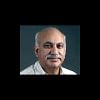The deadly game of alibis
The terrorist assault on cities began in Mumbai: not Mumbai 2008, but Mumbai 1993. A series of coordinated bomb blasts in February 1993 had an impact far greater than the destruction of half a dozen buildings. The thesis that a humungous metropolis constitutes a soft spot has been proved often since 1993 across the world. It is porous, and therefore particularly vulnerable to those whose only objective is terror, best achieved by the killing of innocents wherever they can be found. Nothing is sacrosanct: school, hospital, railway station, stadium, music arena. Terrorists are mass murderers; mass urbanisation offers them a hunting ground. It once required armies to raze a city. Technology has changed the equation between offence and defence. A few can inflict the dread that once needed a host of uniforms.
The assault on New York, more familiar as 9/11, was perhaps the most dramatic, not least because of unbelievable visuals that still live on airwaves. But New York was not alone. Equally famous Western cities were hit and hurt, leaving each one in uproar, rage, horror, pain - and, in all cases till date, still groping for a comprehensive answer to a vicious problem. Nations have improved their tactical capacity to defend their cities, but have been singularly unable to agree upon the counteroffensive needed to bring terrorist masterminds to justice.
This deadlock is a recipe for ruin. Terrorists have expanded their reach, improved their weapons and increased their recruits. We can no longer dismiss the possibility that nuclear contamination might be within their reach. If we are hapless in a confrontation with conventional weapons, what will we do when they use unconventional ones? Those on a suicide mission do not care how they die. What they care about is how many they will take with them.
Responsible governments now know that you cannot wreck a country in search of elusive militias. Iraq was an expensive folly. Responsible leaders recognise that you cannot blame a whole religion, Islam, for the sins of a few Muslims. It was a coincidence, but just hours before the anguish of Paris hit our consciousness, Prime Minister Narendra Modi noted that the spirit of Islamic Sufism has been and remains the antidote to guns and terrorism. This is the kind of understanding that requires reinforcement.
In practical terms, however, what next? We cannot deny a simple fact. Nations who have been worst hit by terrorism remain ambivalent about the hunt for masterminds, pursuing a quarry only when it suits them rather than as a principle. We hear the same clichés on the day of a tragedy. Once memory cools, politics and clever advocacy of geostrategic options prevail. The killers in Paris were puppets. The puppeteer is sitting in some sanctuary somewhere else. As long as he can survive with impunity, protected by vested interests that could include local governments, this malevolence will not ebb.
Initial reports say that ISIS was behind the havoc in Paris. On paper this simplifies the search; in real life this extends the problem. ISIS has, uniquely, been attracting volunteers from western Europe, particularly England and France. The Trojan horse does not have to be dragged through city gates by stealth. The horse is living quietly within its target city, if not with a regular job then at least with social security. This will have consequences in the whole of Europe, most emphatically in the next round of elections, further reducing liberal space.
The present governments have only themselves to blame. There cannot be much hope if they are still unable to agree upon a definition for terrorist that can be accepted by the United Nations. Language is not the problem. Too many protégés of big powers are still selling that poison weed labelled 'Your gunman is a terrorist, my gunman is a freedom-fighter', and their mentors are buying into this fallacy.
There has to be a beginning to the way forward. Perhaps we can return, logically, to where it all began, Mumbai. For decades we have identified who organised Mumbai 1993, Dawood Ibrahim. Over the last few years, America has directly helped in the arduous collection of evidence against Hafez Sayeed, head of the Lashkar-e-Taiba and architect of Mumbai 2008. America has acknowledged as much in joint statements with India. Why cannot Dawood Ibrahim, who does not bother to refute allegations that he heads a Mafia operation, be picked up from his sanctuary in Karachi and brought to trial? Why should Sayeed continue to taunt India and the West from his safe haven in Lahore, and surely plan for a second Mumbai-style attack? Instead of bringing both to justice, Dawood and Sayeed have mentors in Islamabad who have upgraded their security.
When will this game of alibis get over? If it continues, Paris will continue.
The writer is Editor of The Sunday Guardian, published from Delhi, India on Sunday, published from London and Editorial Director, India Today and Headlines Today.

 For all latest news, follow The Daily Star's Google News channel.
For all latest news, follow The Daily Star's Google News channel. 



Comments